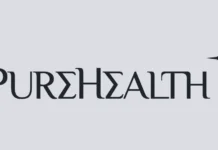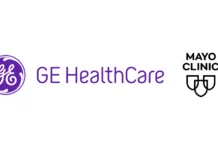HUMIRA is the first new biologic treatment introduced in eight years for patients with JIA and the first to offer a convenient, at-home and self-administered dose every other week. JIA is the first pediatric indication for HUMIRA in Europe and the sixth indication for HUMIRA overall.
JIA usually appears before the age of 16. Symptoms commonly include persistent joint swelling, pain and stiffness. Any joint can be affected and inflammation may limit the mobility of the affected joints. The goal of treatment is to control inflammation, relieve pain, preserve mobility and joint function, as well as prevent disease progression.
About HUMIRA JIA Clinical Study
The European Union approval is based on the results of a Phase III, 48-week study that included 171 children with polyarticular JIA. The 48-week study was followed by an open-label extension period. In the first part of the 48-week study, two groups of patients – those taking MTX and those not taking MTX – received open-label HUMIRA subcutaneously every other week for 16 weeks. Children who showed a 30 percent or greater improvement in JIA signs and symptoms (n=133) entered the second part of the study and were randomized to receive either HUMIRA or placebo for an additional 32 weeks or until disease flare.
In the second part of the study, significantly fewer children receiving HUMIRA demonstrated disease flare compared to children on placebo, both without MTX (43 percent vs. 71 percent, p=0.031) and with MTX (37 percent vs. 65 percent, p=0.015). Twice as many children on HUMIRA achieved PedACR 70 compared to those on placebo (56 percent vs. 28 percent, respectively, p<0.001) at week 48.
Patient responses were measured using the American College of Rheumatology Pediatric (PedACR) 30 score, which represents a 30 percent or greater improvement in JIA signs and symptoms, such as the number of swollen joints with loss of motion, assessment of pain and level of disability. A flare was defined as a worsening of 30 percent or more in at least three of the six PedACR Pedi response variables, a minimum of two active joints, and no more than one indicator improving by 30 percent.
At the end of the 48-week study or at the time of disease flare during the double-blind phase, patients could enter the open-label extension period. Efficacy and safety were assessed at routine intervals throughout the study. PedACR responses were maintained for up to two years in patients who received HUMIRA throughout the study.
The most common adverse events were infections (mostly mild upper respiratory) and injection site reactions. No tuberculosis or serious opportunistic infections were reported during this study. The adverse events observed in children were similar in frequency and type to those observed in adults in previous studies with HUMIRA.
Important Safety Information
Serious infections, sepsis, rare cases of tuberculosis (TB), and opportunistic infections, including fatalities, have been reported with the use of TNF antagonists, including HUMIRA. Many of the serious infections have occurred in patients on concomitant immunosuppressive therapy that, in addition to their underlying disease, could predispose them to infections. Patients must be monitored closely for infections, including tuberculosis, before, during and after treatment with HUMIRA. Treatment should not be initiated in patients with active infections until infections are controlled. HUMIRA should not be used by patients with active TB or other severe infections such as sepsis and opportunistic infections. If latent tuberculosis is diagnosed, appropriate treatment for latent tuberculosis must be initiated with anti-tuberculosis prophylaxis therapy before starting treatment with HUMIRA, and in accordance with local recommendations. Patients who develop new infections while using HUMIRA should be monitored closely. HUMIRA should be discontinued if a patient develops a new serious infection until infections are controlled. Physicians should exercise caution when considering use of HUMIRA in patients with a history of recurring infection or with underlying conditions that may predispose patients to infections.
TNF-blocking agents have been associated with reactivation of hepatitis B (HBV) in patients who are chronic carriers of the virus. Some cases have been fatal. Patients at risk for HBV infection should be evaluated for prior evidence of HBV infection before initiating HUMIRA.
The combinations of HUMIRA and anakinra, and HUMIRA and abatacept are not recommended.
TNF antagonists, including HUMIRA, have been associated in rare cases with demyelinating disease, including multiple sclerosis, Guillain-Barré syndrome and optic neuritis, and serious allergic reactions. Rare reports of pancytopenia, including aplastic anemia have been reported with TNF-blocking agents. Adverse events of the haematologic system, including medically significant cytopenia have been infrequently reported with HUMIRA.
More cases of malignancies including lymphoma have been observed among patients receiving a TNF antagonist compared with control patients in clinical trials. The size of the control group and limited duration of the controlled portions of studies precludes the ability to draw firm conclusions. Furthermore, there is an increased background lymphoma risk in rheumatoid arthritis patients with long-standing, highly active, inflammatory disease, which complicates the risk estimation. During the long-term open-label trials with HUMIRA, the overall rate of malignancies was similar to what would be expected for an age, gender and race matched general population. With the current knowledge, a possible risk for the development of lymphomas or other malignancies in patients treated with a TNF antagonist cannot be excluded. All patients, and in particular patients with a medical history of extensive immunosuppressant therapy or psoriasis patients with a history of Psoralen Ultra-Violet A (PUVA) treatment, should be examined for the presence of non-melanoma skin cancer prior to and during treatment with HUMIRA.
Rare postmarketing cases of hepatosplenic T-cell lymphoma have been identified in patients treated with adalimumab. This rare type of T-cell lymphoma has a very aggressive disease course and is usually fatal. Some of these hepatosplenic T-cell lymphomas with HUMIRA have occurred in young adult patients on concomitant treatment with azathioprine or 6-mercaptopurine used for Crohn's disease. A risk for the development of hepatosplenic T-cell lymphoma in patients treated with HUMIRA cannot be excluded.
In clinical studies with another TNF antagonist, a higher rate of serious congestive heart failure (CHF) related adverse events including worsening CHF and new onset CHF have been reported. Cases of worsening CHF have also been reported in patients receiving HUMIRA. Physicians should exercise caution when using HUMIRA in patients who have heart failure and monitor them carefully. HUMIRA should not be used in patients with moderate or severe heart failure.
The most frequently reported adverse event (>1/10 patients) at least possibly causally related to HUMIRA is injection site reaction (including pain, swelling, redness or pruritus). Other common adverse events (reported by >1/100 patients) at least possibly causally related to HUMIRA include lower respiratory infections (including pneumonia, bronchitis), viral infections (including influenza, herpes infections), candidiasis, bacterial infection (including urinary tract infections), upper respiratory infection, dizziness (including vertigo), headache, neurologic sensation disorders (including paraesthesias), cough, nasopharyngeal pain, diarrhea, abdominal pain, stomatitis and mouth ulceration, nausea, hepatic enzymes increased, rash, pruritus, musculoskeletal pain, pyrexia, fatigue (including asthenia and malaise). Adverse drug reactions reported post-marketing includes intestinal perforation, interstitial lung disease including pulmonary fibrosis and cutaneous vasculitis.
About HUMIRA
In Europe, in addition to its approval for polyarticular JIA, HUMIRA in combination with methotrexate (MTX), is indicated for the treatment of moderate to severe, active rheumatoid arthritis in adult patients when the response to disease-modifying anti-rheumatic drugs including MTX has been inadequate. HUMIRA is also indicated for the treatment of severe, active and progressive rheumatoid arthritis in adults not previously treated with MTX. HUMIRA can be given as monotherapy in case of intolerance to MTX or when continued treatment with MTX is inappropriate. HUMIRA has been shown to reduce the rate of progression of joint damage as measured by X-ray and to improve physical function, when given in combination with MTX.
HUMIRA is indicated for the treatment of active and progressive psoriatic arthritis in adults when the response to previous disease-modifying anti-rheumatic drug therapy has been inadequate. HUMIRA has been shown to reduce the rate of progression of peripheral joint damage as measured by X-ray in patients with polyarticular symmetrical subtypes of the disease and to improve physical function.
HUMIRA is indicated for the treatment of adults with severe, active ankylosing spondylitis who have had an inadequate response to conventional therapy.
HUMIRA is indicated for treatment of severe, active Crohn's disease, in patients who have not responded despite a full and adequate course of therapy with a corticosteroid and/or an immunosuppressant; or who are intolerant to or have medical contraindications for such therapies. For induction treatment, HUMIRA should be given in combination with corticosteroids. HUMIRA can be given as monotherapy in case of intolerance to corticosteroids or when continued treatment with corticosteroids is inappropriate.
HUMIRA is indicated for the treatment of moderate-to-severe chronic plaque psoriasis in adult patients who failed to respond to or who have a contraindication to, or are intolerant to other systemic therapy including cyclosporine, MTX or PUVA.
Abbott's Commitment to Immunology
Abbott is focused on the discovery and development of innovative treatments for immunologic diseases. The AbbottBioresearchCenter, founded in 1989 in Worcester, Massachusetts, United States, is a world-class discovery and basic research facility committed to finding new treatments for autoimmune diseases.
About Abbott
Abbott (NYSE: ABT) is a global, broad-based health care company devoted to the discovery, development, manufacture and marketing of pharmaceuticals and medical products, including nutritionals, devices and diagnostics. The company employs more than 68,000 people and markets its products in more than 130 countries.
Media:
Ilke Arici
(847) 938-8551

















